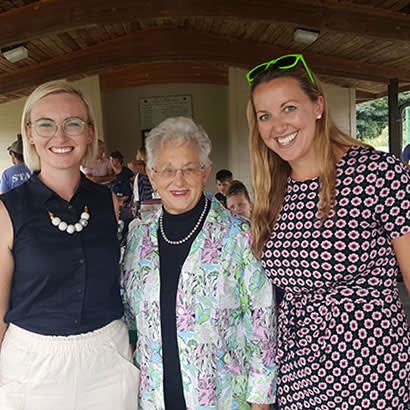
NRPA has supported our members for nearly a decade in the administration and operation of the federally funded Summer Food Service Program (SFSP) and the at-risk, afterschool component of the Child and Adult Care Food Program (CACFP), administered by the U.S. Department of Agriculture (USDA) to meet the nutritional needs of low-income youth. Approximately 60 percent of members serve summer and afterschool meals and snacks through federally funded programs.
For summer 2018, USDA’s Food and Nutrition Service estimates that 5,707 SFSP sites identified as park and recreation facilities, with another 5,000 sites identifying as a community center, local government program, playground, swimming pool or nature center. In addition, since 2010, and in partnership with the Walmart Foundation, NRPA has calculated that through the Commit to Health initiative 85 million meals have been served to 4.5 million youth in more than 300 communities.
According to a recent survey conducted by NRPA, more than 9 in 10 park and recreation agencies also dedicate their facilities and offer a wide variety of programs and services to older adults. Between their current capacity to operate successful federally funded meal programs and their existing reach and trust among older adult populations, park and recreation facilities are ideal touchpoints for connecting food-insecure older adults with nutritious meals and other health and wellness resources.
NRPA strongly encourages those park and recreation facilities serving both children and older adults to consider an intergenerational approach to combating hunger in communities by pairing two or more federal nutrition programs to provide healthy meals and snacks to both populations at the same site.
Agencies currently participating in any of these programs are encouraged to invite their members of Congress out to visit the sites and centers to see these programs in action. These site visits are critical for educating policymakers on how vital the programs are to communities, what is working well with how the programs operate and what could potentially be improved on through legislative changes.
This year, as CNR and OAA advance in Congress, NRPA’s Public Policy team will provide updates on how your advocacy can be helpful in potentially making policy change ideas a reality.
Advocacy Opportunities to Support Federal Nutrition Programs
Two pieces of legislation impacting the federal funds available to support nutrition programs for low-income children and older adults are expected to move in Congress this year — the Child Nutrition Reauthorization (CNR) and the Older Americans Act (OAA).
Child Nutrition Reauthorization (CNR)
Summer Food Service Program (SFSP)
Program Goal: Youth 18 years or younger are served up to two free meals and a snack any day during the summer months when school is not in session. Sites must be in a low-income neighborhood and can be hosted at recreation centers, swimming pools, parks or anywhere that kids may congregate.
Policy Ideas for Summer Meals
- Improve the area eligibility test to allow sites to participate if located in an area where 40 percent of children are eligible for free or reduced-price school meals.
- Allow local government agencies and private nonprofit organizations to feed children year-round through the Summer Food Service Program (eliminating the need to switch between SFSP and CACFP operations).
- Provide funding for transportation grants to fund innovative approaches and mobile meal trucks.
- Allow all sites to serve a third meal.
Child and Adult Care Food Program (CACFP):
Program Goal (At-Risk Afterschool Component):
Youth 18 years or younger are served up to one meal and one snack per day during the school year when the school day ends, over the weekends and during school holiday breaks. Sites must be in a low-income neighborhood and educational or enrichment activities must also be available on-site.
Policy Ideas for CACFP Afterschool Meals:
- Improve the area eligibility test (same as SFSP).
- Allow an additional meal service to be offered to children when in care over a specified amount of time (i.e., weekend programming).
Program Goal (Adult Care Component):
Adults 60 years or older are served meals and snacks as part of a non-residential, structured comprehensive program, providing health and social service support to enrolled participants, any day during the calendar year. Sites must be in a facility that meets local adult care licensing requirements.
Policy Ideas for CACFP Older Adult Meals:
- Streamline eligibility and administrative requirements of sites to serve both youth and older adults via CACFP, encouraging an intergenerational approach to combating hunger in communities.
- Create pilot meal program sites that test an area eligibility model, based on senior poverty or senior food insecurity data, where all participants can eat for free.
Farm to School Grant Program
Program Goal: Federal grants are available on an annual basis to support the implementation and expansion of school garden projects. Park and recreation agencies are eligible to directly apply, but projects must take place on school property and in partnership with the school hosting the garden.
Policy Ideas for Farm to School Program:
Allow projects to take place on non-school properties, such as in parks and on land owned by local municipalities.
Older Americans Act (OAA)
Senior Congregate Nutrition Program:
Program Goal: Title III-C of OAA authorizes federal grants to states, which are often then re-granted to local Area Agencies on Aging (AAA) to support congregate meal programs for adults age 60 or older. These programs are designed to promote socialization and are offered in coordination with other community-based support programs. Park and recreation agencies should partner with their local AAA to participate as meal program sites.
Policy Ideas for Senior Congregate Nutrition Program:
Develop pilot meal program sites that test an area eligibility model, based on senior poverty or senior food insecurity data, where all participants can eat for free.
Kate Clabaugh, MSW, is NRPA’s Senior Government Affairs Manager.

